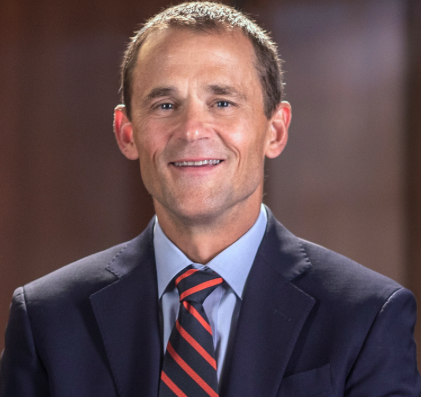
by James C. Sherlock
My articles about charter schools draw passionate comments.
Proponents argue what they are trying to achieve with charters. Opponents argue what they want to avoid. Fair enough. There is wisdom in both positions.
So, how does Virginia structure a program that supports successful charters and both denies and closes unsuccessful ones? The most obvious path is to examine thirty years of experience with charters across the country.
I will here provide a brief review of those successes and failures and describe what I understand to be the features of each. The goal is for Virginia to develop a program that features the successes and avoids the pitfalls. I will make specific recommendations that attempt to accommodate the wishes and fears of both sides of the debate.
The successes. I often offer Success Academy and KIPP schools as examples of the value of charters. They have achieved unarguably wonderful results.
I feature them because my personal focus is on better education for poor urban kids, mostly minority students, stuck in schools that have been failing for generations. Those failed legacy schools have escaped improvement no matter how much money we throw at them.
Black and Hispanic lives do indeed matter. Improving their schools is the most useful and impactful thing we can ever do for them.
Uneven results. Paul Reville, a former Massachusetts Secretary of Education, has made the point:
It’s impossible to generalize charter schools. How charters are run, funded, and overseen varies dramatically from state to state, school to school. In Charter Schools at the Crossroads, one of the most comprehensive overviews of the charter movement, Chester Finn, M.A.T.’67, Ed.D.’70, concludes, “The charter track record can best be described as stunningly uneven.”
Political issues.
The charter movement’s first major supporter was Albert Shanker, who for most of my adult life was president of the American Federation of Teachers. He was interested in charter schools that were district-run laboratories for better instruction.
Political support was bipartisan.
But when charter schools developed as a parallel education system rather than district-run labs, the teachers’ unions became unalterably opposed to charters both good and bad. From Zachary Jason’s The Battle Over Charter Schools:
Competition bred animosity. Finn boils down the charter battle to this: “If you are an adult invested in district education for jobs, and you discover charters are slowly eating your lunch, you will grow intense in your desire to contain or kill charters.”
The teachers’ unions do not emphasize this underlying reason in their public opposition. Their most effective public reason is, “Charters take funding away from public schools.” If funding follows the child and too few children leave legacy schools to allow economies of scale reduction, that can be a valid concern.
That can be solved under those conditions by not reducing state assistance to schools losing a few kids to charters.
A clear alternative, never offered as far as I can tell, is to close a failed legacy elementary school one grade at a time, starting with kindergarten. Replace it one grade at a time with a charter school with a new management team with new pedagogy, faculty and staff.

A basic question was posed March 29, 2016 by UVa President James Ryan when he was dean of the Harvard Graduate School of Education:
The question I keep returning to, as firm believer in education equity, is a simple one: Are you comfortable allowing more affluent families to choose their schools while denying poorer families similar opportunities?
I am genuinely puzzled why those who care about equal educational opportunity but oppose school choice fail to see the tension in those stances.
At the moment, families with financial means have options. They can, and often do, select a place to live based on the quality of the public schools, or they can choose a private school. Poorer families have far fewer options. To be sure, the growth of public school choice plans, including charter schools, has offered more choices to lower-income families.
But what middle-income and affluent families often take for granted–the ability to select a school for their children–poorer families experience as the exception rather than the rule.
Assuming his principles on the matter have not changed, President Ryan could prove of significant value in crafting a new charter policy for the Commonwealth.
Number of Authorizers. A core difference between successful charter schools and failed ones has been the number of authorizers. Again from Mr. Jason:
The staggering range in charter quality starts with authorizers. Every charter school has a state-sanctioned organization that grants its license, reviews its performance, and renews or terminates its contract. About 200 charters close a year, not just for academic shortcomings, but for flawed governance or leadership, a drop in student demand, or financial miscalculations. Districts themselves authorize 39 percent of the country’s charters, state education agencies 28 percent, and the rest include colleges, nonprofit, and for-profit organizations. In Indianapolis, even the mayor’s office has authorizations. An undiscerning authorizer is the main root of weak charters.
Michigan (44 authorizers) and Ohio (65 authorizers) have had perhaps the worst experiences with charters.
The common thread there is too many organizations given the power to authorize charters resulting in lack of common and sufficient oversight of educational and financial stewardship by the charters.
For-profit charters. Overall, the record of for-profit charters has not been good. The most famous case in point is Edison Schools. The New Jersey-based Edison Schools Inc. once had 130 charters in 22 states. In 2017 they ran five.
For-profits have a very small share of the market — less than 10% now – – but opponents of charters feature their stories. One reason is that for-profit charters are banned from getting federal charter startup money.
I agree with that policy, and Virginia should adopt it in any revision to state policy designed to support new legislation.
Failure Rate. Opponents of charter schools cite their failure rate as a reason to oppose them. I consider charter failures a feature not a bug.
Charter schools are meant to be shut if they do not meet accountability standards set by the bodies that authorize them to operate. Name a failed public school that shares that accountability.
Scandals. Charters, like traditional public schools, have experienced scandal. Again, lax oversight is the culprit.
Back to the basic question. Per Jim Ryan: “Are you comfortable allowing more affluent families to choose their schools while denying poorer families similar opportunities?”
Challenges of existing Virginia charter policy and laws. Charter schools have proven nationwide over decades to be most successful educating poor minority urban kids who were stuck in failed schools. Virginia has no such charters. That is entirely because Virginia law requires school divisions to approve and oversee charters.
The defining characteristic of a charter school is independence from the policies and employees of school boards and thus the schools for which they are to offer an alternative.
Charters in Virginia are not independent of the policies of the school boards. Indeed charter schools are staffed by school division employees. Which is why there are so few of them. And none of them offer alternatives to failed urban schools.
The adults who run Virginia’s urban school divisions are unalterably opposed to charters. That in turn is in part because urban public school teachers, some compensated far higher than average citizens in those communities, form not only the most influential, but often the only, lobby for city school policy.
Bottom line. A new charter policy for Virginia written in support of new legislation should have the following characteristics:
- Focus on creating charter schools for urban poor and minority students;
- Limit the number of authorizing entities and ensure they have the wherewithal to provide the necessary oversight;
- Ensure that VDOE or a separate state board is one of the authorizers;
- Ensure independence of charters from school divisions while encouraging cooperation in such things as transportation and other logistical services;
- Ensure that charters can succeed. The corollary: ensure that bad ones fail;
- Engage the most successful charter management organizations (CMOs) to participate in a newly designed program. Give those with proven track records priority for new Virginia charters.
- Deny charters to for-profit operators. That does not mean they are all bad. It means that they are not worth the risk, including the risk of getting the new policies approved by the General Assembly;
- Maintain state funding for legacy schools that lose a few students to charters;
- Set up a mechanism by which charters can replace failed legacy schools one grade at a time starting in kindergarten, perhaps initially K-2 and a grade a year thereafter. Ask the successful CMO’s what will work best.
- Assure charter school employees operate under the same unionization laws as other public school employees. To wit: (a) ensure they join unions if they meet the qualifications for representation; and (b) ensure that they can engage in collective bargaining if the charters agree;
- Plan on startup funding from the state only unless and until the new federal rules get overturned;
- Get advice from Success Academy which has offered to help pro bono; and
- Ask UVa President James Ryan to take an active role in the program design and perhaps leadership.
Those policies seem to accommodate the objectives of both sides as best they can be accommodated and give Virginia charters the best chance to do both well and good.
All of this will require new state laws. Do it.

Leave a Reply
You must be logged in to post a comment.